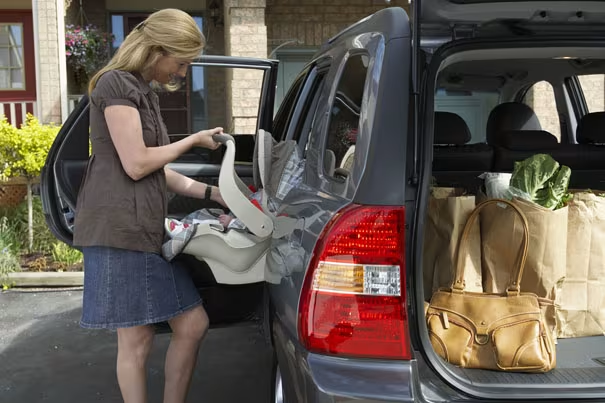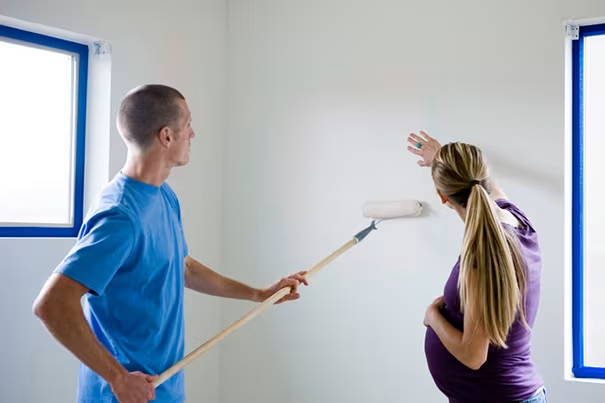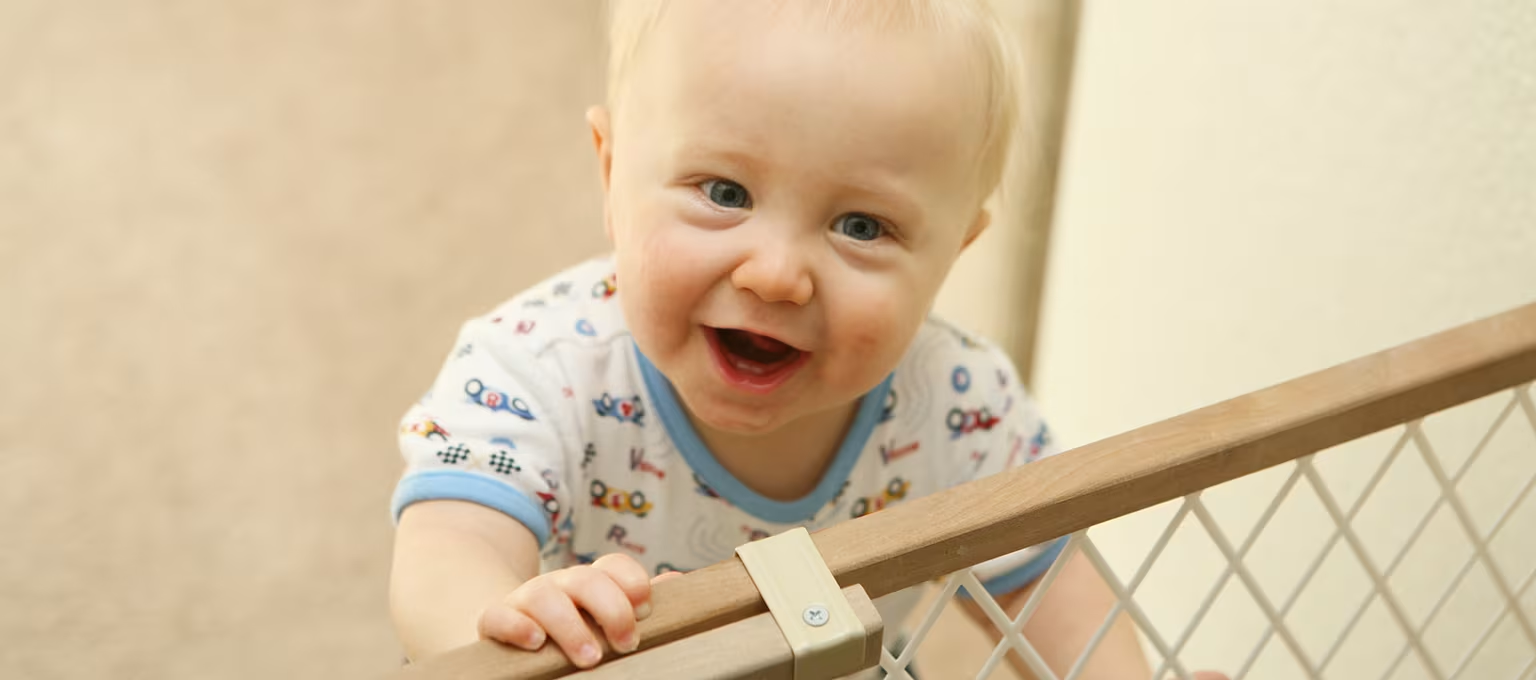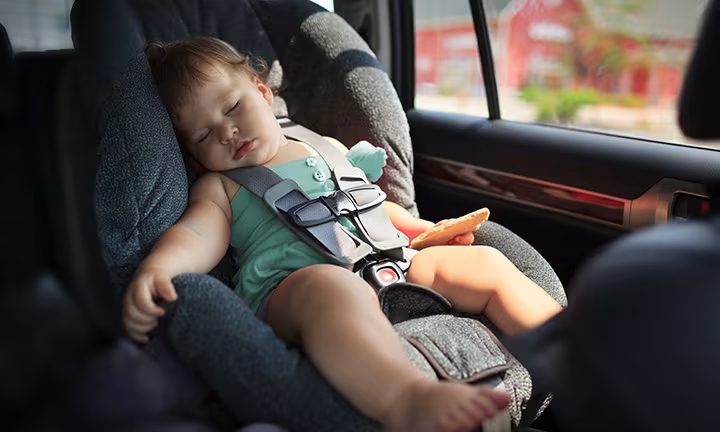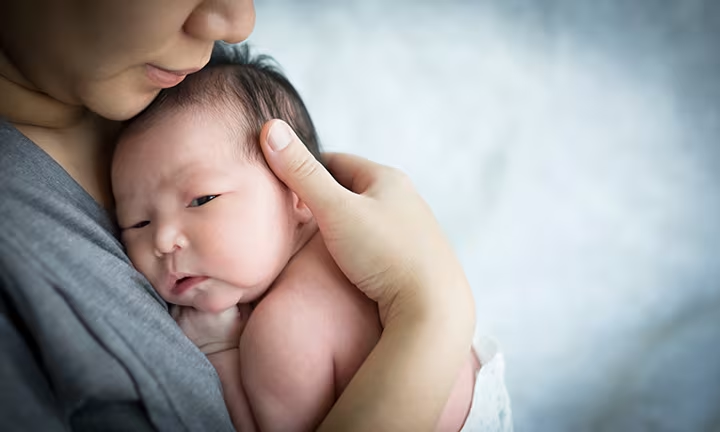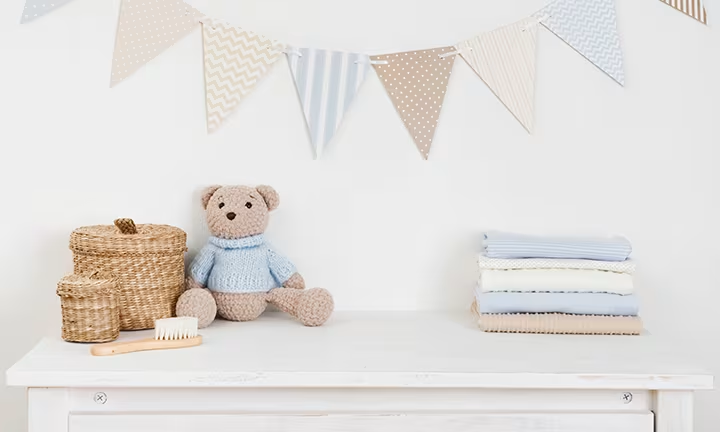
All About When to Move Your Baby to Their Own Room


Key Takeaways
Many health authorities, pediatricians, and sleep experts recommend that your baby sleeps in a crib or bassinet in your room for the first few months of their life.
Sharing a room with your baby is common, and often recommended, for parents at the beginning of their baby’s life. However, after some time your baby will be ready to move to their own room, which can come with many mixed emotions – for you both. In this article we’ll answer common questions for parents about this transition, such as when you can move baby to their own room and how to move your baby to their own room. We'll also share practical tips from sleep consultants and pediatricians to ensure your baby’s transition to their new room is as smooth and comforting as possible.
When Should I Move My Baby to Their Own Room?
The American Academy of Pediatrics and other health authorities advise that babies sleep in a crib or bassinet in the same room as their parents until they are at least six months old, ideally until they are 12 months old. This is because once your baby reaches 6 months old their risk for Sudden Infant Death Syndrome (SIDS) decreases. Babies are only at risk for SIDS until their first birthday, but the risk of SIDS between 6 and 12 months old is much lower. This is why it’s okay to start the transition at their half birthday. Sleep consultants may recommend you move your baby to their own room at 6 months because it could help them get used to their room before the developmental milestone of separation anxiety, which can cause a sleep regression.
Why is it Recommended I Room Share with My Newborn or Young Baby?
Sharing a room with your newborn or young baby is part of the American Academy of Pediatrics recommendations for safe sleep practices. Room sharing is different from bed sharing – bed sharing, also known as co-sleeping, is not recommended at any time. The American Academy of Pediatrics says you should room share with your baby under 6 months old because it’s proven to decrease their risk of Sudden Infant Death Syndrome (SIDS) by up to 50%. Other benefits of room sharing with a baby under six months include convenience. Babies grow very fast at the beginning of their life and need to eat often, including in the middle of the night. If you share a room with your baby, it could make nighttime feeds easier. Plus having them closely can make comforting and settling them back to sleep a simplified process. Some parents may also find it reassuring to know their baby is nearby. Room sharing is the much safer alternative to bed sharing.
How Should I Get my Baby’s Room Ready for Them to Move To?
One of the main fundamentals to healthy sleep is creating an environment conducive to sleep.
As you start to think about moving your baby into their own room, it’s recommended you consider:
If your baby is struggling with the transition from your room to their own room, take this free 3-minute sleep quiz. Our Smart Sleep Coach app can step-by-step walk you through how to successfully transition your baby to their own room, which includes providing an optimized sleep schedule that is based around your baby's unique sleep needs.
Advice for Moving My Baby to Their Own Room
Some babies may take to their new room with no problem. Others, however, may need some time to adjust or get used to it. Here are tips for moving your baby to their own room include from our team of sleep consultants:
FAQS AT A GLANCE
Once your baby reaches 6-months-old they may sleep better in their own room. This is because they are less likely to be disrupted or distracted when trying to sleep or fall back asleep.
The Bottom Line
Moving your baby to their own room is a significant milestone that can benefit both the baby and the parents. The American Academy of Pediatrics say you should share a room, but not a bed, with your six-months-old baby to reduce their risk of SIDS. Once they reach six months, it becomes safe and often recommended to sleep in their own room. While your baby may need to be eased into their new room, such as starting with daytime naps first, every baby is different. Patience and flexibility are crucial, as each baby adjusts at their own pace.
- “Mother-Infant Room-Sharing and Sleep Outcomes in the INSIGHT Study”, Pediatrics
- “Sleep-Related Infant Deaths: Updated 2022 Recommendations for Reducing Infant Deaths in the Sleep Environment”, The American Academy of Pediatrics
- “Ways to Reduce The Risk Of SIDS And Other Sleep-Related Causes Of Infant Death”, National Institute of Child Health and Human Development (NICHD)
